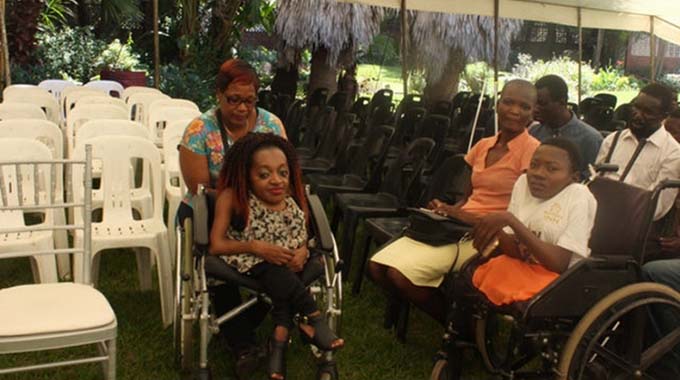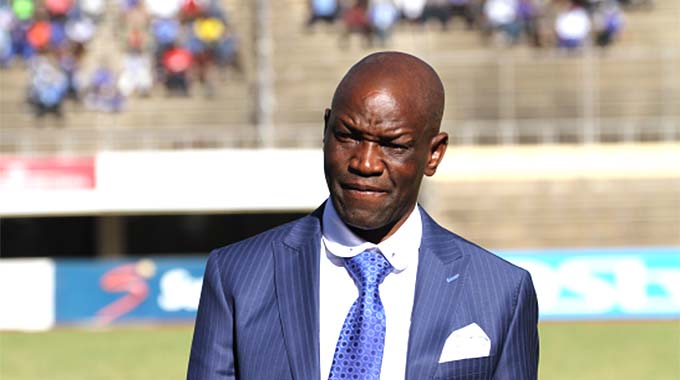People with disabilities have right to found families

Isabel Palasida Correspondent
The field of violence against women is still evolving and there is no unanimity yet on how best to define it.
The term has been used to describe a number of acts including rape and sexual assault, sexual harassment, murder, physical assault, emotional abuse, battering, stalking, genital mutilation and pornography among other definitions.
The debate is whether to define the word “violence” or to broaden it by using the expression “violence against women” as antagonistic behaviours that adversely and disproportionality affect women.
Violence against women is defined differently due to disciplines and is specific to a particular discipline’s methods of research.
Research questions among these different disciplines often differ according to their purpose of research and potential uses of the data gotten therein.
For example, public health focuses on morbidity (injuries) and mortality (deaths) whilst the criminal justice system (courts and law enforcement agencies) has its own focus yet on the other hand criminologists focus more on the behaviour of perpetrators.
By virtue of these different definitions within different disciplines there is a gap created or left especially on areas that have not been researched on, and as time progresses these areas are being forgotten and as a result violence against women in general is not provided for in a number of legislations.
Not withstanding the coming in of the Domestic Violence Act, violence against women has been, over the years, socially accepted since it is not seen or considered as a social problem.
In fact it has been seen rather as “normal” and natural behaviour and private matter of each individual.
This is probably premised on the fact that Zimbabwe is a patriarchal society and strong family relationships are still deep-rooted. By virtue of these two aspects, it has some effects on women who are mostly victims of violence.
If this can be said about women in general, it therefore follows that women with disability especially those in custodial settings and or in guardianship are affected more because of intersectional issues.
Women generally suffer because they are women. Women with disabilities suffer because they have a disabilities. It therefore follows that a combination of being a woman and a woman with disability compounds the suffering.
Family, especially in the African set-up in general and Zimbabwe in particular is important.
Even the Zimbabwean Constitution recognises the importance of family and this is ably captured in Section 25 which states in part that, the family should be protected and the institution of the family must also be protected.
The same constitution does not segregate in this regards and everyone has a right to found a family (Section 78) and women with disabilities are no exception.
The only exception provided for in that said section is marrying children under the age of 18.
If this right to marry and found a family is provided for in the Constitution, it is apparent that many women with disabilities are being denied their right in this regard.
Women with disabilities especially those with mental disabilities, more often than not, are considered as perpetual minors who have no capacity to decide on their own and thus decisions are made for them.
Research has shown that on one hand they are perceived as being asexual or sexually inappropriate but in most circumstances they are sexually abused and on the other hand, they are considered hyper-sexual and this has perpetuated them being sexually abused.
The society views them as individuals who are unable to run a home and are unable to perform socially construed women duties.
In some cultures because they are unable to undergo traditional practices which are meant to enhancing themselves for sexual pleasure they are not readily accepted as, for instance, daughters in law.
In some instances they are forced to undergo sterilisation without their informed and this violates their right to respect for their private and family life.
Coupled with sterilisation, they are also denied the right to become a parent and this takes many forms which includes but not limited to, limited choices for contraceptive, dearth of proper reproductive health care and access to reproductive technologies and forced abortions.
As a result these women encounter myriad barriers to achieve their parenting role. Policies, practices and beliefs that women with disabilities are not fit to be parents have, in a big way failed them.
They are considered people who are in need of care instead of giving care and therefore incapable of looking after their children.
They are then bedevilled in accessing parenting services, support and information in relation to reproductive health issues and care and different stages of child rearing.
The practice of removing babies or children of women with disabilities from their mothers constitutes a breach of their right to found and maintain a family.
Some studies have revealed that mothers with intellectual disabilities especially in institutions are more likely to have their children permanently removed or denied contact with their babies than other group of women.
This is both morally and legally wrong since these babies will not be able to access their mothers’ breast milk.
The right to family requires members of the family to live together and develop mutual relations.
The enjoyment of the mother and child’s company constitutes a fundamental element of family life.
In as much people have moved from the traditional ways of life profoundly, they still go back to traditional thinking and practices especially where women with disabilities are concerned. For as long as people still maintain this thinking, women with disabilities will continue to be disadvantaged and segregated against.
Not withstanding the above mentioned constitutional provisions women with disabilities still remain isolated.
It is important to also mention that the Zimbabwean Constitution sets an enabling legal environment towards not only women’s rights but rights of Women with disabilities since they are supposed to be enabled to live with their families and their participation in social, creative and recreational activities.
It goes further and states that they are supposed to be protected from all forms of exploitation and abuse.
It is clear therefore in terms of our constitution that the right to found a family is a fundamental human right which every human being is entitled to enjoy.
The State should therefore play a major role in ensuring that its people enjoy their right to found a family without excluding other groups of society.
National laws and international human rights instruments are binding on the government and they provide guidance on what should be done to remove obstacles and challenges that women with disabilities are facing in getting married.
The government of Zimbabwe is therefore called upon to see to it that women with disabilities, including those with mental disabilities, are accorded the right to found a family.
For feedback questions and comments please feel free to email [email protected] or to phone our hotline number on 0782 900 900 or our toll free on 08080131









Comments